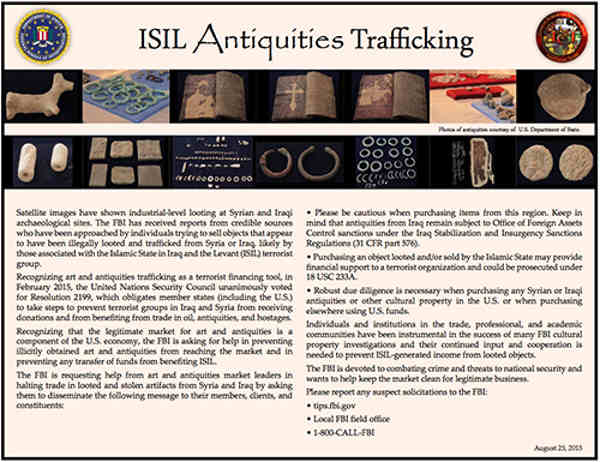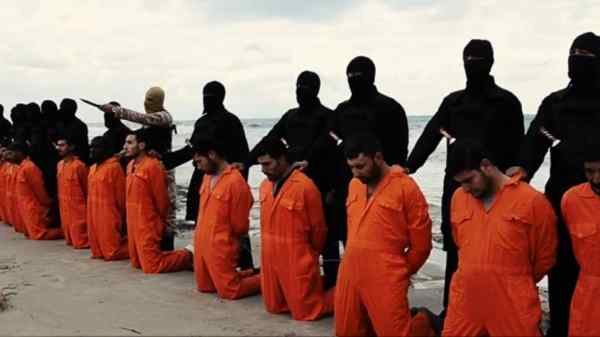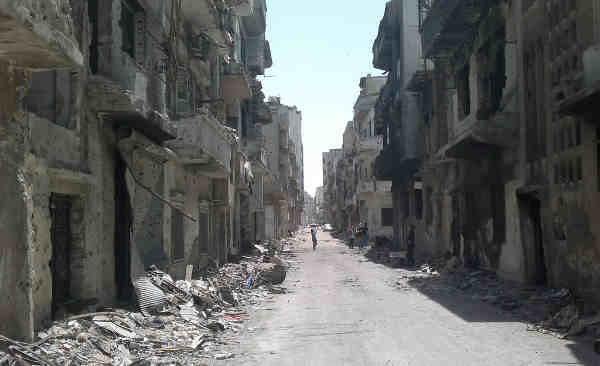Terrorists Selling Plundered Antiquities in the Market: FBI

The U.S. Federal Bureau of Investigation (FBI) is alerting art collectors and dealers to be careful trading Near Eastern antiquities, warning that artifacts plundered by terrorist organizations such as ISIL (Islamic State of Iraq and Syria or ISIS) are entering the marketplace.
“We now have credible reports that U.S. persons have been offered cultural property that appears to have been removed from Syria and Iraq recently,” said Bonnie Magness-Gardiner, manager of the FBI’s Art Theft Program.
The Bureau is asking U.S. art and antiquities market leaders to spread the word that preventing illegally obtained artifacts from reaching the market helps stem the transfer of funds to terrorists.
[ ISIS Terrorists Damage Cultural Heritage Sites in Iraq ]
In a single-page document titled ISIL Antiquities Trafficking, the FBI asks leaders in the field to disseminate the following message:
- Please be cautious when purchasing items from this region. Keep in mind that antiquities from Iraq remain subject to Office of Foreign Assets Control sanctions under the Iraq Stabilization and Insurgency Sanctions Regulations (31 CFR part 576).
- Purchasing an object looted and/or sold by the Islamic State may provide financial support to a terrorist organization and could be prosecuted under 18 USC 233A.
- Robust due diligence is necessary when purchasing any Syrian or Iraqi antiquities or other cultural property in the U.S. or when purchasing elsewhere using U.S. funds.
In February, the United Nations Security Council unanimously passed Resolution 2199, which obligates member states to take steps to prevent terrorist groups in Iraq and Syria from receiving donations and from benefiting from trade in oil, antiquities, and hostages.
In the U.S., meanwhile, buyers may want to consult the Red Lists and should pay special attention to an object’s origin. Buyers should ask many questions such as: Where did this come from? When did it come into the country? Does it have an export license from the country of origin?

“Check and verify provenance, importation, and other documents,” said Magness-Gardiner. “You have to be very careful when you’re buying. We don’t want to say don’t buy anything at all. There’s a lot of legitimate material circulating in the marketplace. What we’re trying to say is, don’t allow these pieces that could potentially support terrorism to be part of the trade.”






